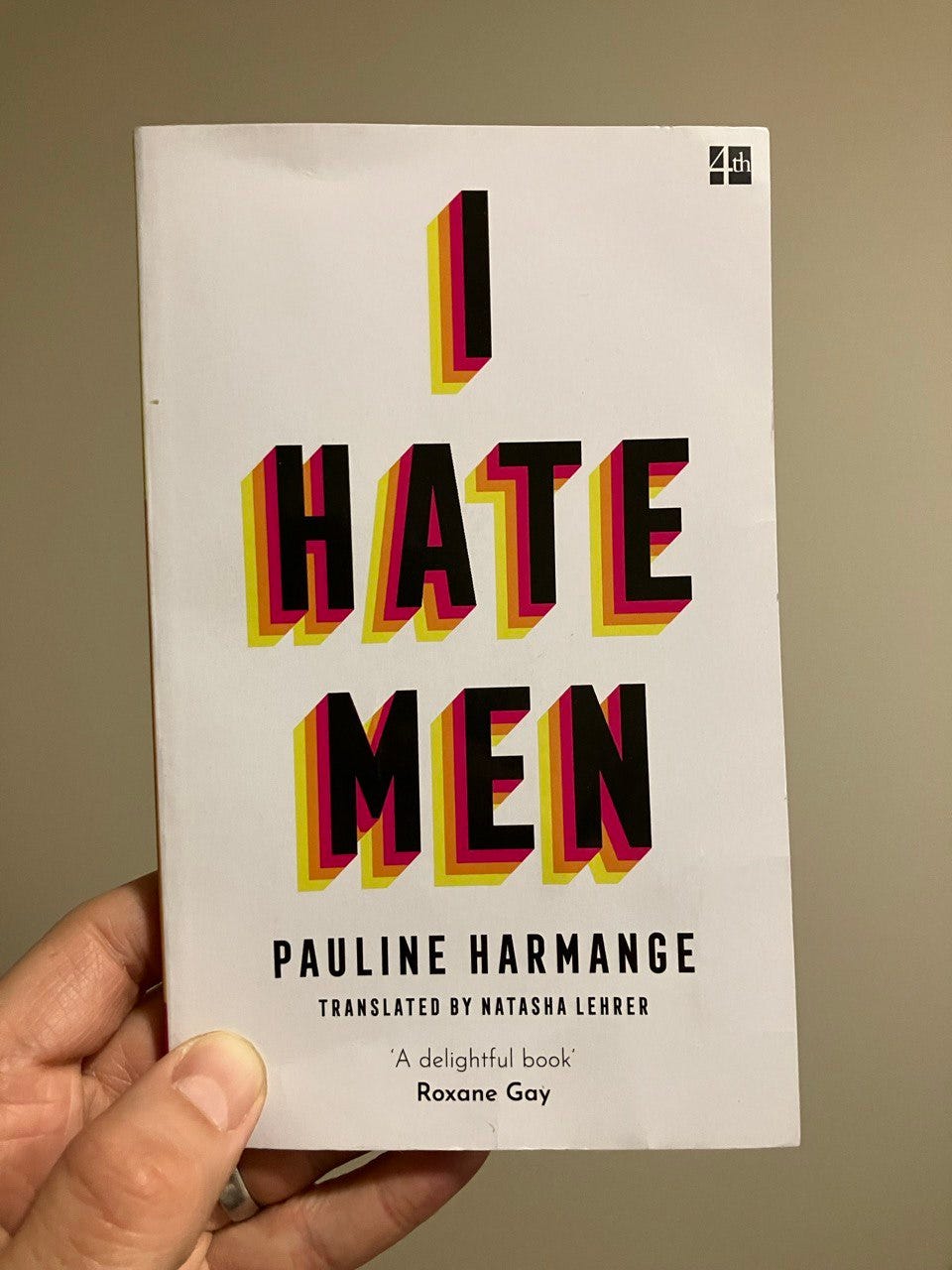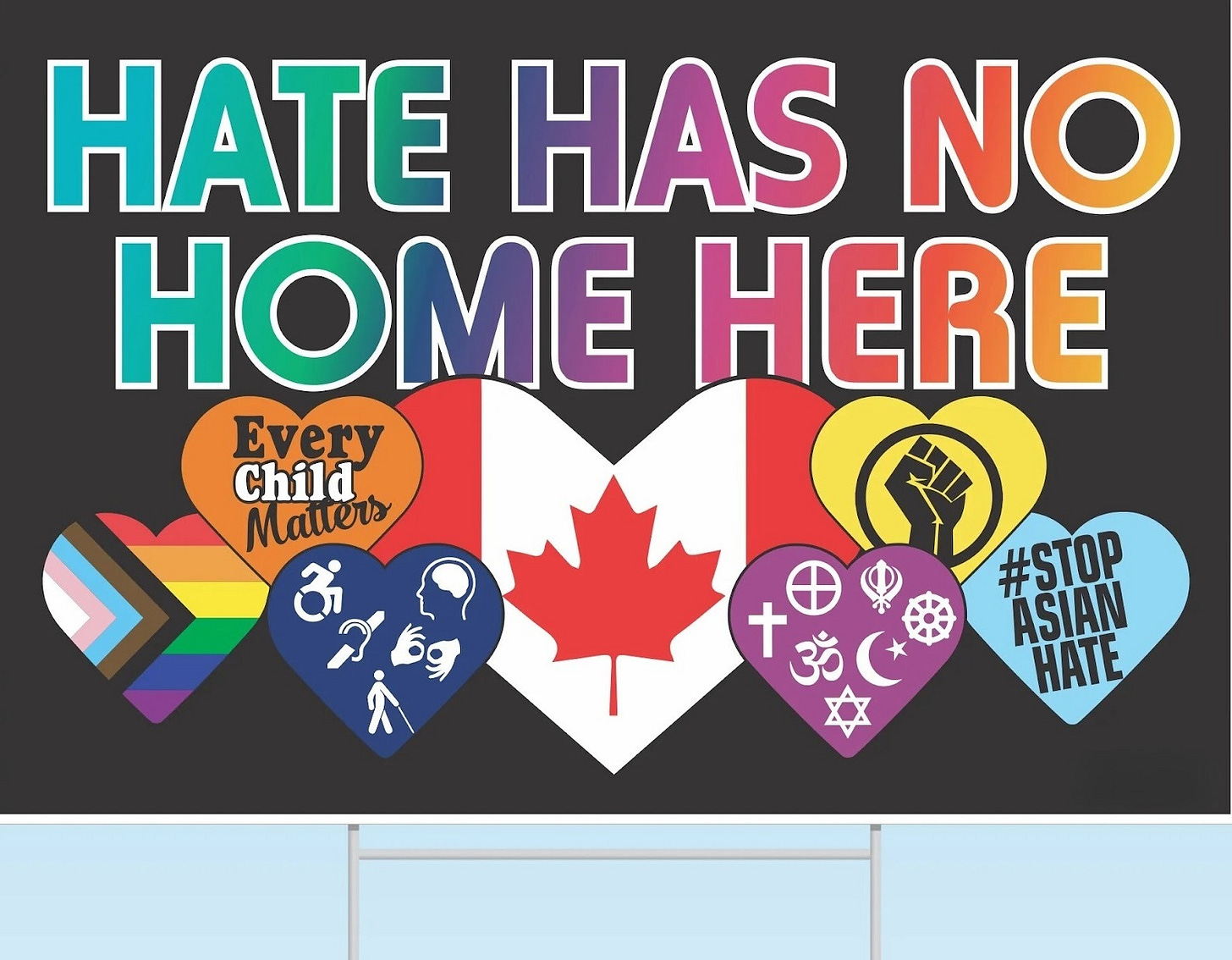Hate
In “A Unified Theory of Glen Powell,” Anne Helen Petersen writes about why actor Glen Powell is so appealing to women. The part of the article that gets the most attention is her claim that it’s because he likes women, while other blockbuster stars do not.
Tom Cruise doesn’t like women. Neither does Miles Teller. Channing Tatum likes women. So does Ryan Gosling. Brad Pitt used to like women but doesn’t anymore. Leonardo Di Caprio only likes them occasionally. Bradley Cooper doesn’t, George Clooney does. Matt Damon doesn’t, Ben Affleck only does in that one scene in the J.Lo documentary. Marlon Brando didn’t, Montgomery Clift did. Paul Newman didn’t onscreen but did IRL. Cary Grant did, John Wayne definitely, definitely didn’t. Will Smith pretends like he doesn’t but I’m not convinced. Mark Wahlberg absolutely does not, but Daniel Day-Lewis does. So does Paul Mescal.
I don’t follow these guys’ lives closely enough to have a clear sense of this, but if I had to guess, the ones highlighted as disliking women may dislike feminist women rather than women altogether. However, the particular assessment is less significant than the overarching premise: despite a man’s handsomeness, his innate dislike for the opposite sex makes him less appealing to women.
Women with low self-esteem might feel differently, and experience a gravitational pull toward men who dislike them, but otherwise, this is true. The same applies to women: if, deep down, they don’t like men, no matter how physically attractive they are, they will ultimately be less appealing to men.
We can ratchet this up from mere dislike to hate. There are men who hate women, and women who hate men. I would argue that this hate lies at the core of the archetypal mommy and daddy issues that have been polarizing culture. Hate begets hate, especially when left unexamined. It’s very hard to like or love someone who is actively and pointedly hating you or the demographic you belong to, especially when that hate is propped up by a limited worldview positioned as unarguable.
I recently read the following book, which was pro-hate and helped me better understand this phenomenon:
The author, Pauline Harmange, not only embraces the cliché of being a “man-hating feminist,” or misandrist, but she also argues that such hatred is justified. While I disagree with many elements of her worldview, the most visceral aspect of reading it was feeling repelled rather than appealed. Still, I like the fact that she owned her hate.
What is hate? The dictionary definition of “extreme dislike” feels unsatisfying. Philosophers have a more refined understanding, and have been musing about this state since Aristotle. In Rhetoric, the Greek philosopher contrasted hate with anger. Anger is directed at particular actions and is fleeting, while hate is enduring and directed at a person’s essence, with a desire for their destruction.
Meanwhile, modern psychologists like David Matsumoto view hate through an evolutionary lens, describing it as a universal emotion composed of anger, contempt, and disgust (“ANCODI”), which may have adaptively evolved to protect one’s in-group from harm. In this light, hate functions as a survival instinct, culturally amplified, to defend one’s community from perceived threats.
I relate to these descriptions. Speaking personally, when I feel angry, there is an inner heat that shuts down my slower modes of thinking, accompanied by a hot impulse to act immediately, aiming to stop whatever action provoked my anger. When I am in a cooler state, I perceive the actions that triggered my anger as threats, causing harm to me or those I am responsible for. Sometimes my anger feels righteous; other times, it seems foolish and the result of a mistaken view.
When experiencing hate, my anger is not directed at an action but at a person or group of people. Since there is no immediate action to respond to, the anger festers and circulates within; the heat turns molten, things become dark, and if I am honest with myself, I want to destroy them. Sensing into it further and meeting the hate directly, it feels very ugly, deeply unloving, and, if it lingers too long, evil.
Meeting my own hate and doing my best to love it invokes a strange state, which I can only describe as some form of internal alchemy. It has afforded me the option not to indulge in it and has helped me sense hate in others, especially those whose hate is repressed. People who publicly proclaim to hate hate are the ones with the most repressed hate. It’s an extremely reliable red flag (or hate flag) when your neighbour virtue-signals with one of those “Hate Has No Home Here” signs on their lawn.
The druid John Michael Greer wrote a very insightful article called “Hate is the New Sex,” providing a warning about what could happen when hate is publicly hated and privately repressed. Greer claims that the suppression of hate is culturally harmful, leading to a hate explosion. He compares it to the Victorian era’s repression of sexual desire, which ultimately bottled up healthy expressions and led to a release that began with the Sexual Revolution and eventually culminated in our oversexed and pornified culture.
The same is happening with hate, and if true, the recent public killing and public cheering of UnitedHealthcare CEO Brian Thompson is a striking example. Just like the Sexual Revolution, the repression of hate will lead to a Revolution of Hate. However, Greer argues that hate is not inherently bad, as some things need to be destroyed just as others need to be created. If hate is misplaced—or worse, if we try to eradicate it from human experience by demonizing it—we’ll only create a very dark culture of hate. Demonizing hate creates demons.
I do think the reason why many are returning to religions of love like Christianity is that they sense these demons growing, getting stronger, and aiming their sights on themselves and those they love. I see the silver lining because the proper response to hate is love—but not naïve love, performative love, or putting "hate has no home here" signs on your lawn. Rather, it is a real love that has the courage to acknowledge and confront the hate in your own heart.
If we fail to own our hate and do not put it in its proper place, it will be misplaced, aiming to destroy something that should be loved. It goes without saying that men or women should not be destroyed. However, disliking them will make them dislike you, and hating them will make them want to destroy you. This will hold true whether one’s hate is openly expressed or suppressed.
Perhaps we just want to be as appealing as Glen Powell, but if we want to surround ourselves with loving people and slowly encourage a more loving world, we must play the long game. Now is the time to own our hate instead of demonizing it. Hate gives real love a chance.
I actually spoke to John Michael Greer at The Stoa in 2022. The recording was never released, but the archdruid was on fire. Here he is advocating for my favourite spiritual practice: journaling.
Less Foolish members can listen to the full session below …





